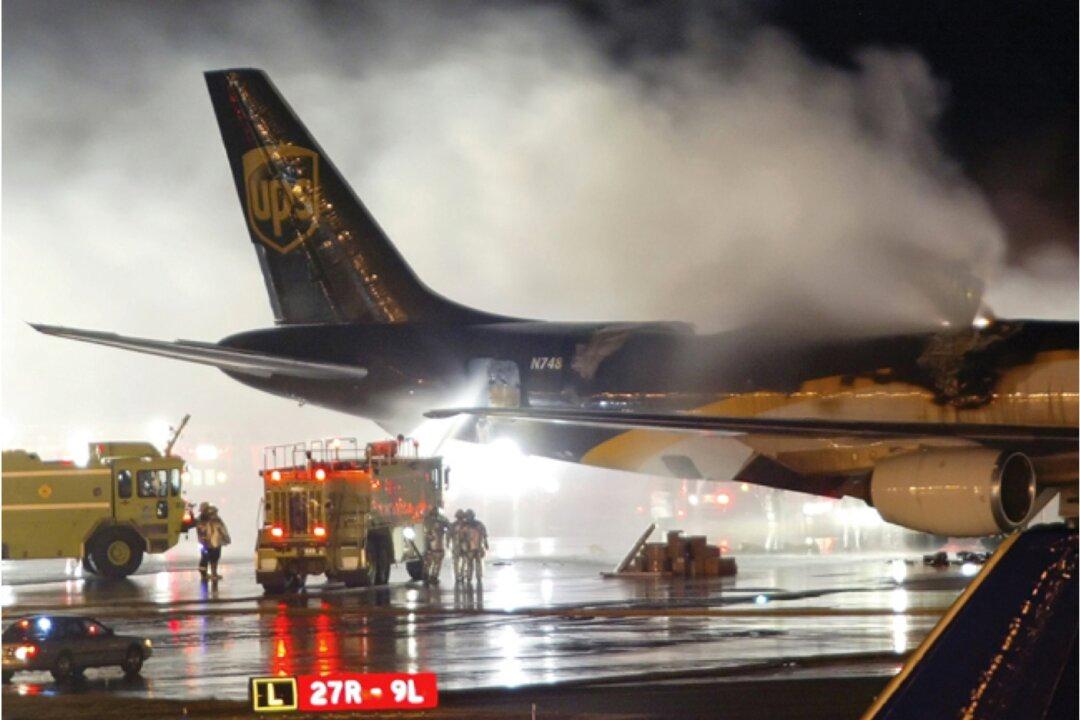The global supply chain for virtually all battery-powered products is grappling with a difficult problem: Lithium ion batteries, the kind found in just about every rechargeable device these days—from laptops, tablets, and iPhones, to power tools, medical devices, and electric cars—are highly volatile. If a single battery is damaged it can ignite, heating up a neighboring battery causing it to catch fire, creating an uncontrollable chain reaction with catastrophic results.
For obvious reasons, this poses a huge risk especially when shipped by air. A pilot with a fire in the cargo hold has few options. And the worst has already happened. There have been more than 80 incidents, mostly since 2004, including fatalities, on commercial flights, cargo flights, and in airmail deliveries.





